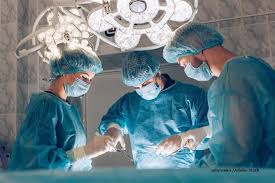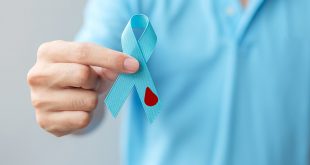Complications can occur during or after surgery, even if everything is done to prevent them. Patients have a role to play. Anesthetic risks, hemorrhage, nosocomial infections, thrombosis, how can you best protect yourself?
List of tips that are easy to implement
You can help reduce your main operative and post-operative risks by taking a series of simple and useful measures.
Wrong medicine, wrong dosage … you can help prevent these mistakes:
Bring all your medications: the team treating you at the hospital needs to know all the medications you are taking, whether they are prescribed or bought over the counter, including so-called “natural” remedies made from plants. The easiest way is to bring all of your medications in a bag.
Ask whether you should continue to take your usual medicines during hospitalization: if you take treatment for high blood pressure every day, for example, you should talk to the hospital doctor and tell him exactly which medicine (s) you are taking and which doses.
You have to ask questions about the drugs you are given in the hospital: what is a particular drug used for? Why am I being given it? At what dose? It is a good way to reduce medication errors.
Make sure this medication is right for you: ask the nurse to check if your identity is the one on the prescription.
Ask your family to help you: a family member or friend can implement the above advice if you are unable to do so.
Make sure that the surgery instruments including Allis Tissue Grasping Forceps are proper sterilized and don’t have rust or any sort of stuff on that.
Nosocomial infections
The risk of nosocomial infections is better and better controlled, but it still exists. You can reduce your risk of infection by following these tips:
Before surgery, ask what technique will be used to remove hair from the operated area (if necessary). It is indeed better that this be done with an electric razor rather than with a razor blade, in order to avoid micro-cuts.
Have everyone, including doctors and nurses; wash their hands before making any physical contact with you. It is a key way to fight against nosocomial infections.
Tell your friends and family to avoid visiting you when they are sick.
Know the first symptoms of infection (pain, redness, heat when it is superficial): this can allow you to alert the staff very quickly.
Deep vein thrombosis
Deep vein thrombosis (DVT) is the formation of a blood clot in a vein. It usually occurs in a vein in the lower extremities. Deep vein thrombosis can have a serious immediate complication, pulmonary embolism. Major surgeries and being in bed are at high risk.
To prevent this complication, the surgeon will review your medical history to see if you need to be monitored in particular. Your doctor may prescribe blood thinners before or after surgery. On your side, you can implement certain measures:
If you can, put your feet off the bed;
Get up and walk as soon as you can;
Wear compression stockings.
Post-operative hemorrhage
Improvements in surgical techniques have made postoperative bleeding much less frequent. Here are some prevention tips:
Show your doctor all the medicines you take, including non-prescription and natural medicines. Aspirin and ibuprofen, for example, which are commonly used, can increase the risk of bleeding after surgery;
Before the procedure, tell the surgeon if you have ever had a problem with bleeding, even during minor surgery.
Anesthetic risks
Accidents of pure anesthesia are extremely rare. However, giving certain information to the doctor can prevent you from the risks associated with anesthesia:
Ask your doctor if you can get local anesthesia or spinal cord anesthesia if you are going to have general anesthesia.
Find out if anyone in your family has ever had a bad reaction to anesthesia, and if so, tell your doctor and the whole team. Although this is very rare, some people inherit a predisposition to have accidents during anesthesia.
For more details, please visit: jimymedical.co.uk
 Universal Bloggers
Universal Bloggers




